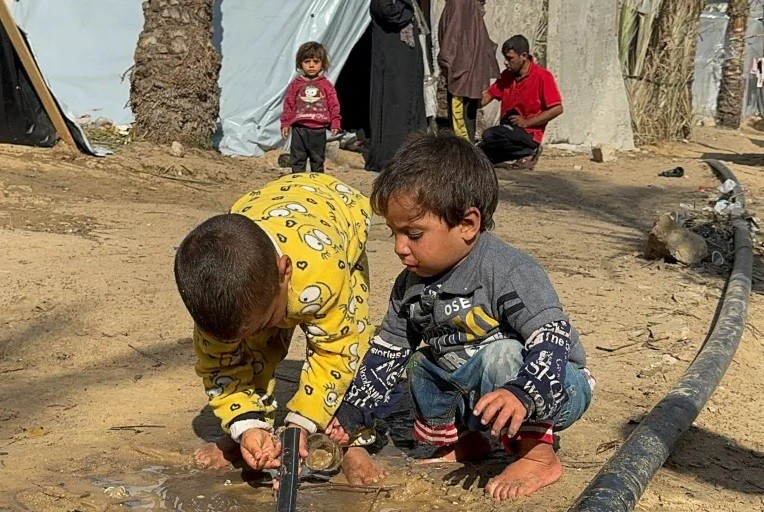21/12/2023
21/12/2023

GAZA, Dec 21: The United Nations Children’s Fund (UNICEF) has issued a dire warning regarding the critical situation in Gaza, emphasizing the severe threat to children due to limited access to clean water and sanitation amid Israel's ongoing bombardment.
According to UNICEF, displaced masses in the southern Gaza Strip, driven by the conflict, are receiving only 1.5 to 2 liters of water daily, well below the recommended survival requirement. The crisis is further exacerbated by constrained aid deliveries and infrastructure destruction, placing a significant number of vulnerable children at risk of disease.
Catherine Russell, UNICEF Executive Director, stressed the gravity of the situation, stating, “Access to sufficient amounts of clean water is a matter of life and death, and children in Gaza have barely a drop to drink. Children and their families have to use water from unsafe sources that are highly contaminated or polluted. Without safe water, many more children will die from deprivation and disease in the coming days.”
The conflict's continuous impact has led hundreds of thousands of people, approximately half of them children, into the city of Rafah since early December. Urgent needs for food, water, shelter, medicines, and protection persist, with the rising demand pushing water and sanitation systems in the city to an extremely critical state.
UNICEF underscores that 3 liters of water per day are required for survival, increasing to 15 liters when accounting for water needed for washing and cooking. The use of unsafe water and the lack of hygiene pose significant risks for children, leaving them more vulnerable to waterborne diseases, dehydration, and malnutrition.
The humanitarian aid deliveries fall short of meeting basic survival needs, contributing to shortages in water and hygiene products. This is compounded by the destruction of a large percentage of sanitation facilities, unable to accommodate the influx of displaced Palestinians.
Russell highlighted the inadequacy of the supplies provided, attributing it to constant bombing and restrictions on materials and fuel entering the territory. Urgent action is needed to repair damaged water systems.
Concerns about the spread of diseases and epidemics have been raised by doctors and aid workers since the start of Israel’s indiscriminate bombing campaign after Hamas’s October 7 attacks. Data from the World Health Organization (WHO) reveals a significant increase in cases of diarrhea, particularly in children under five, with the UN Office for the Coordination of Humanitarian Affairs reporting additional cases of meningitis, chickenpox, jaundice, and upper respiratory tract infections. The UN health agency cautioned that the figures may not provide a complete picture due to the collapsing health system and other services in Gaza nearing collapse.


